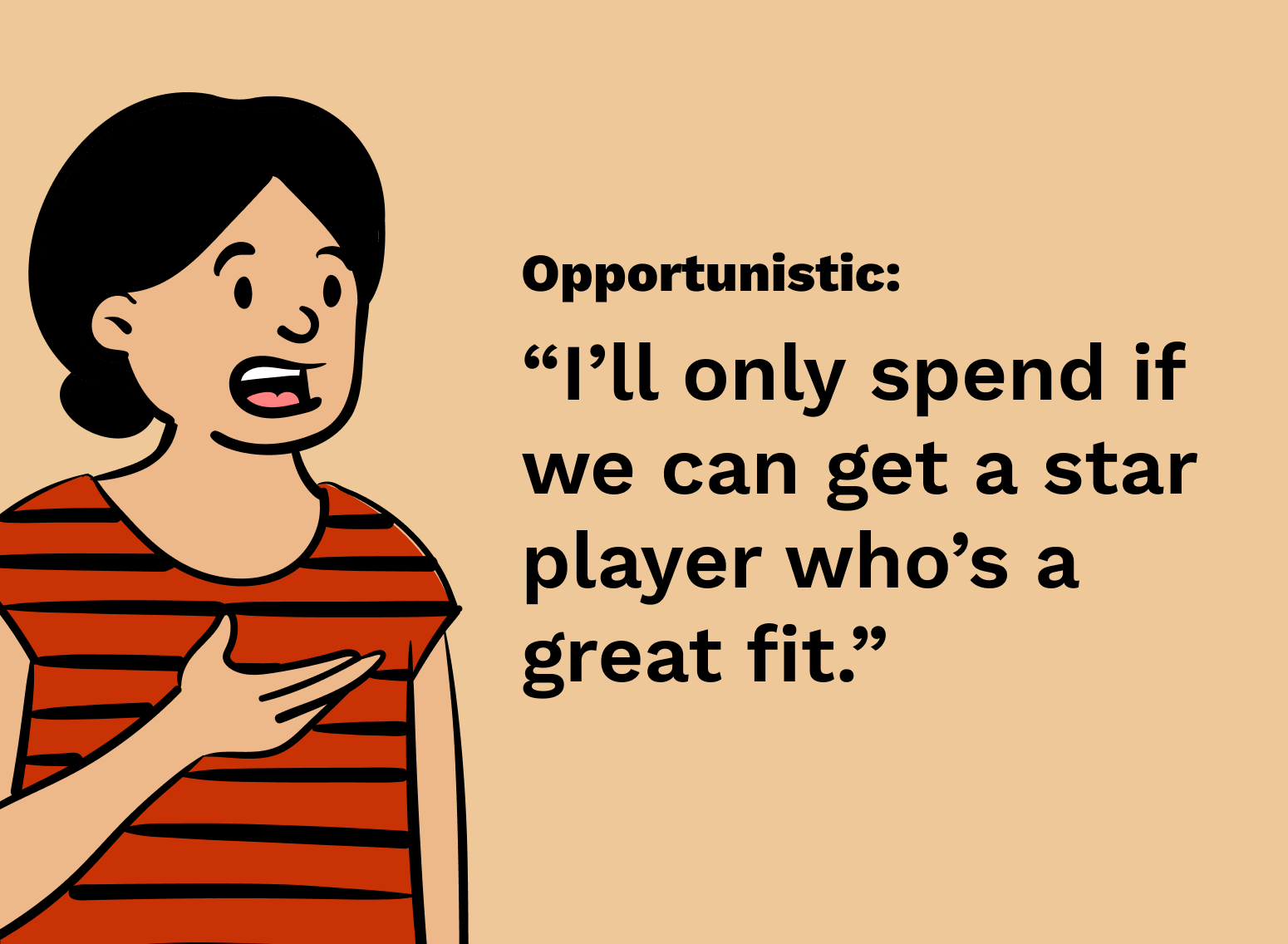The Off-Season
CHAPTER 7
Navigating the information economy going on here is the #1 reason you should get an agent.
In the off-season, teams may take the opportunity to make changes to their roster and staff, so they start sharing information with other teams, players, and agents. Even media outlets jump into the mix, trying to be the first to report on rumors and soon-to-be deals.
A good agent’s extensive industry knowledge will help you understand your value in this market, what kind of information changes that value and how, and how to negotiate based on those shifts.
Pay attention to which teams are setting the pace in the off-season. Usually, they’ll be the ones with the highest budgets and most valuable free agents. Teams at this level may snap up the best players as quickly as possible to make sure they get what they want.
Once the best players and teams have paired up, the next tier of teams and players start locking in. The teams that are the most prepared at this level often have extensive plans, so they often have proposed teammates already if you sign on. On the other hand, some teams at this level may be reactionary, preferring to wait just a little longer to see how things shake out before signing.
Having this kind of information will help you navigate how and when to approach your negotiations, ask the proper questions, and set yourself up for success in the off-season.
What can you tell about teams?
How much do they want to spend?
What kind of plans do they have?
How do you compare to other players?
Pay attention to which players are hitting the open market and where they’re going. The salary you’ll be able to negotiate is a combination of your value, how replaceable you are, and how well you negotiate. Knowing which players are going where will help you make better decisions and negotiate from a position of power.
How can you use what you know about other players to negotiate?
Let’s say you’re talking to multiple teams who are interested in you. You know that one of those teams is talking to both you and another player for the same position, so you likely don’t have much individual leverage.
However, at some point you might learn that the other player has committed to another team — now, you’ve got much stronger negotiation power because the team doesn’t have another option, but you still do! So, you can leverage other offers against theirs.
What happens if you don’t take advantage of that knowledge?
If you don’t know how fast teams are moving or which players are locked in where, you might find yourself near the end of the off-season with only team left that hasn’t committed to a player in your position. This is not an ideal situation for you, since you have almost no negotiation power — you have to take their deal or risk having nowhere to land, while they may have other options still.





